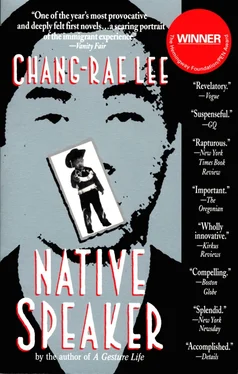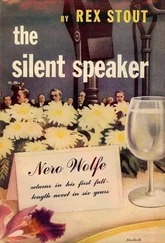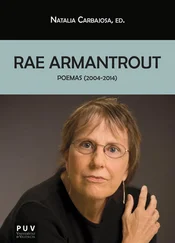We live again in our loft on Jane Street. I help Lelia move back in. An untidy suitcase of clothes, a carton of books. Not much else. Molly waves goodbye to us from the window of her apartment as we flag a cab. She wears dark sunglasses, she tells us, to cover her tears of joy.
We have to leave moving to my father’s house in Ardsley for later. When later is we’re not certain. Soon, perhaps. We’ve cleaned up there as much as we could, held a garage sale, given away much of the rest, and the house stands nearly empty. The house is ready for us. But we decide — or more, understand — that what we need is to live together again before moving off anywhere else. The apartment is where the trouble started, and like most couples we gravitate toward our private sites of pleasure and pain. It’s like you’re looking at a serious wound scarring over, wondering how it ever actually happened, that you survived, that it even hurt you as much as it did although you know damn well it nearly killed.
Lelia is working again, but now only freelancing. I’m at home two days during the week, working the weekends because Kwang and Janice Pawlowsky need me for the trips, for the talks and luncheons, for meeting the press. If Lelia’s busy in the studio with a student I’ll answer phones for her and schedule appointments and make lunches of soup and sandwiches for all of us.
Children visit us daily. They’re young, ages three and up, and on the whole they’re funny in the face, not so much in proportion as in use. Or ill use. The little chins, the lips, the eyes, they’re tentative organs on these kids, almost as if they’re optional equipment. Lelia greets them at the door and they shuffle in on the legs of their mothers, and then they quickly walk to the speech studio Lelia’s set up at the alley end of the loft, where there’s a soundproofed sliding wall to push back.
Lelia decorates the studio with colored butcher paper and animal posters and cutouts her students make. You see her hand-drawn illustrations of the human mouth, the tongue, the upper and lower palates, the uvula. Her strokes are broad and gentle, the colors muted; Lelia says anatomically correct pictures give the kids nightmares.
Maws, I say. She says don’t let them hear you joke and pinches me, but she knows my own history with speech therapists. She knows how I was raised by language experts, saved from the wild.
Lelia has cookies and juice ready for the kids and coffee for the adults, who usually leave after five minutes. They’ll return in an hour and a half. The children remain. Sometimes, when the door shuts, I hear some of them cry. They can all do that.
Presently three of her dozen or so students are Asian. One has a problem with her ears. Her words come out all blunted, edgeless. She sounds as if she’s speaking behind a wall of water. Mahler , she will say, meaning something else we can’t figure out.
The other two are Laotian boys who as far as anyone can tell are perfectly fine. They come today, their fathers bringing them this time. The public school has to farm them out to Lelia because it doesn’t have enough staff. The boys seem happy. They keep slapping each other about the head, pinching noses, pulling ears and eyebrows. They speak a rudimentary English— milk, pee-pee, cookie —but have trouble with words like onion and union. They don’t seem to care. They want to play. Lelia recognizes this, too, and they all gallop on broomsticks while they recite an old nursery rhyme. Maybe this will work, Lelia says to me, hopping in her turn. Sing, she tells them, let’s all sing the song.
Will they remember the verse? I still know the one that ancient chalk-white woman taught me with a polished fruitwood stick. Mrs. Albrecht was her name, her bony hands smelling of diapers.
“Henry Park,” her voice would quiver. “Please recite our favorite verse.” I’d choke, stumble inside myself. And this was her therapy, struck in sublime meter on my palms and the backs of my calves:
Till, like one in slumber bound,
Borne to ocean, I float down, around,
Into a sea profound, of ever-spreading sound…
Peanut Butter Shelley, I’d murmur beneath my breath, unable to remember all the poet’s womanly names. It was my first year of school, my first days away from the private realm of our house and tongue. I thought English would be simply a version of our Korean. Like another kind of coat you could wear. I didn’t know what a difference in language meant then. Or how my tongue would tie in the initial attempts, stiffen so, struggle like an animal booby-trapped and dying inside my head. Native speakers may not fully know this, but English is a scabrous mouthful. In Korean, there are no separate sounds for L and R, the sound is singular and without a baroque Spanish trill or roll. There is no B and V for us, no P and F. I always thought someone must have invented certain words to torture us. Frivolous. Barbarian . I remember my father saying, Your eyes all led , staring at me after I’d smoked pot the first time, and I went to my room and laughed until I wept.
I will always make bad errors of speech. I remind myself of my mother and father, fumbling in front of strangers. Lelia says there are certain mental pathways of speaking that can never be unlearned. Sometimes I’ll still say riddle for little , or bent for vent , though without any accent and so whoever’s present just thinks I’ve momentarily lost my train of thought. But I always hear myself displacing the two languages, conflating them — maybe conflagrating them — for there’s so much rubbing and friction, a fire always threatens to blow up between the tongues. Friction, affliction. In kindergarten, kids would call me “Marble Mouth” because I spoke in a garbled voice, my bound tongue wrenching itself to move in the right ways.
“Yo, China boy,” the older black kids would yell at me across the blacktop, “what you doin’ there, practicin’?”
Of course I was. I would rewhisper all the words and sounds I had messed up earlier that morning, trying to invoke how the one girl who always wore a baby-blue cardigan would speak.
“Thus flies foul our fearless night owl,” she might say, the words forming so punctiliously on her lips, her head raised and neck straight and her eyes fixed on our teacher. Alice Eckles. I adored and despised her height and beauty and the oniony sheen of her skin. I knew she looked just like her parents — lanky, washed-out, lipless — and that when she spoke to them they answered her in the same even, lowing rhythm of ennui and supremacy she lorded over us.
Alice used to sneer at me when I left our class for my special daily period upstairs. The class was Remedial Speech, and I accepted my own presence there if only because of the very trouble I had pronouncing it. The other students were misfits, they all seemed to have dirty hair and oversized mouths and shrunken foreheads and in my estimation were as dumb as the dead. By association, though, so was I. We were the school retards, the mentals, the losers who stuttered or could explode in rage or wet their pants or who just couldn’t say the words.
In truth, the fact that you were in the class likely meant you came from a difficult background, homes where parents fought or took drugs or beat their kids or maybe spoke a foreign language. A few had genuine problems with their mouths or their ears, but the rest of us, we were sent there by the grace of either too much institutional frustration or goodwill.
The teacher was a young woman in her early twenties, straight brown hair, freckles, with a name like Miss Haven or Havishaw. She never struck us like Mrs. Albrecht did, she was actually very quiet, seemingly shoeless, unmatronly, vigilant, gentle. She’d give each of us a small hand mirror so that we might examine our mouths as we spoke, and then she’d come around and practice with us. She would go from one student to the next, sit herself squarely before him or her, and say, Now put your hand on my throat . She wanted us to understand the vibration certain sounds required. If the kid wouldn’t do it — most of us would automatically reach for her neck — she’d take the hand and move it up there herself and say something deep and thrilling like vampire , and you thought, this is a teacher, a person who can show, her mottled milky skin still damp with the sweat of other palms, her breath sweet.
Читать дальше












